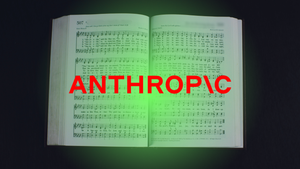The music publishers suing AI company Anthropic have asked if they can amend their lawsuit in response to the recent ruling in another case involving Anthropic and a group of authors.
The music companies want to highlight that Anthropic originally downloaded their lyrics from dodgy piracy sites, something they discovered via the other case, and which has become super relevant because of the judge’s ruling in that other dispute.
In a new court filing, Universal Music Publishing, Concord and ABKCO explain that, in the authors’ case, Judge William Alsup summarised how Anthropic “used BitTorrent to access Library Genesis and Pirate Library Mirror, illegal websites infamous for housing pirated content, to download via ‘torrenting’ millions of unauthorised copies of books”.
Those torrented books, they add, included “many lyric and sheet music anthologies containing publishers’ musical compositions”. Which means that, when Anthropic used the publishers’ lyrics to train its Claude AI model, not only did it not get permission from the music companies to make copies of those works as part of the training process, the whole thing began by downloading pirated copies.
Both the music publishers and the authors argue that Anthropic is liable for copyright infringement because it made copies of their works during the AI training process without getting permission. But Anthropic, like many AI companies, argues that AI training is fair use under American copyright law and therefore no permission is required.
In his ruling on the authors’ case, Alsup concluded that AI training was indeed fair use, at least in the case of Claude. Which was a big win for Anthropic and a controversial decision as far as the copyright industries, including the music industry, were concerned.
However, Alsup also said that Anthropic could only rely on the fair use defence if it had obtained the books it copied from legitimate sources. Which, initially, it did not, having torrented all those millions of books from piracy sites.
That bit of Alsup’s judgement could prove to be a very silver lining for the copyright industries. Obviously, rightsholders would prefer the courts to rule that AI training is never fair use. However, given how many AI start-ups have scraped the internet for training data, the fact that training with pirated content could still result in liability for copyright infringement is a big plus.
With possible statutory damages of up to $150,000 per infringement under US copyright law, that kind of liability could force many AI companies into negotiating lucrative licensing deals to avoid litigation.
Following Alsup’s ruling on the liabilities connected to Anthropic’s pirated training data, it’s important that the music publishers clearly identify in their lawsuit the pirated lyrics used to train Claude. Which is why they want to amend their previous legal filing.
In the new court papers, the publishers note that discovery has been underway in their legal dispute with Anthropic for more than a year, which is where parties in a case share relevant information. And yet they found out about the torrented files via the other lawsuit, not from the AI company.
They write, “for more than a year of discovery in this case, Anthropic concealed from publishers that it used ‘the infamous BitTorrent protocol’ to illegally copy their lyrics on a massive scale from notorious ‘pirate library’ websites”.
Insisting that Anthropic should now provide more information about those downloads, they go on, “Anthropic cannot reasonably justify withholding these essential facts in discovery, particularly where the newly revealed evidence is critical to publishers’ claims”.

